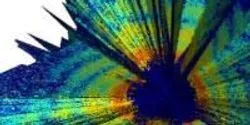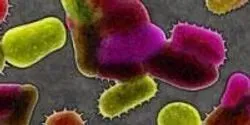Microbiology

When oil from the Deepwater Horizon spill first began washing ashore on Pensacola Municipal Beach in June 2010, populations of sensitive microorganisms, including those that capture sunlight or fix nitrogen from the air, began to decline. At the same time, organisms able to digest light components of the oil began to multiply, starting the process of converting the pollutant to carbon dioxide and biomass.

Research actually provides further support for Darwin, UCLA professor says.

A researcher at Missouri University of Science and Technology has discovered a bacterium that can produce hydrogen, an element that one day could lessen the world’s dependence on oil.

As many as 1.4 million Americans suffer from uncomfortable abdominal cramping and diarrhea that come with ulcerative colitis and Crohn’s disease. These conditions, collectively known as inflammatory bowel disease (IBD), are associated with an imbalance among the thousands of species of “good” bacteria that inhabit the gut. A University of Utah study published on Jan. 22, 2015, in Cell Host and Microbe demonstrates that mice deficient for a component of the immune system, a protein called MyD88, have an imbalanced gut bacterial community – with some species dominating over others - and are more susceptible to contracting a severe IBD-like illness. Further, fecal transplants from healthy donors alleviate IBD symptoms in these mice.

Ames Laboratory scientists use genetic markers to discover the rhizosphere.

Linda Wegley Kelly, PhD, a marine microbial ecologist in the Department of Biology at San Diego State University, talks to contributing editor Tanuja Koppal, PhD, about what has changed in the field since 2001, when she started working in the lab. While genomic and sequencing technologies have become easier and cheaper, the work on the bioinformatics side has now become more tedious in terms of the volume of data that needs to be analyzed. While systems for sample collection and storage have become convenient and customizable, the use of automation in microbiology remains fairly limited. Contamination still remains a cause for concern, and protocols have to be rigorously outlined and implemented.















